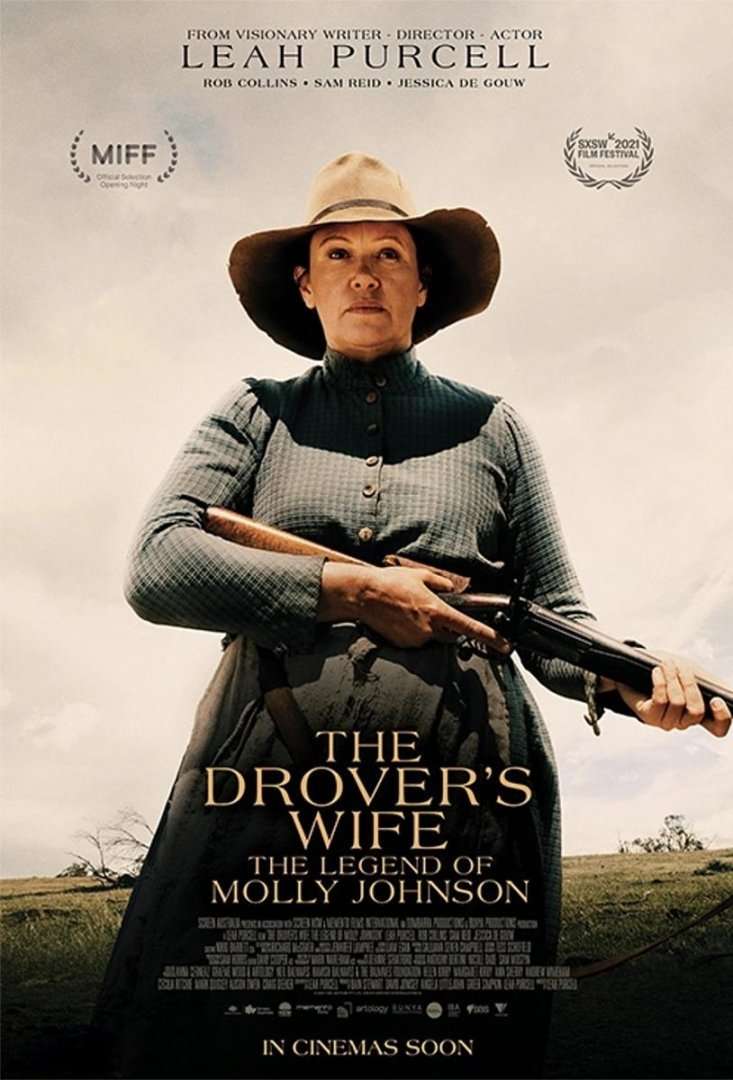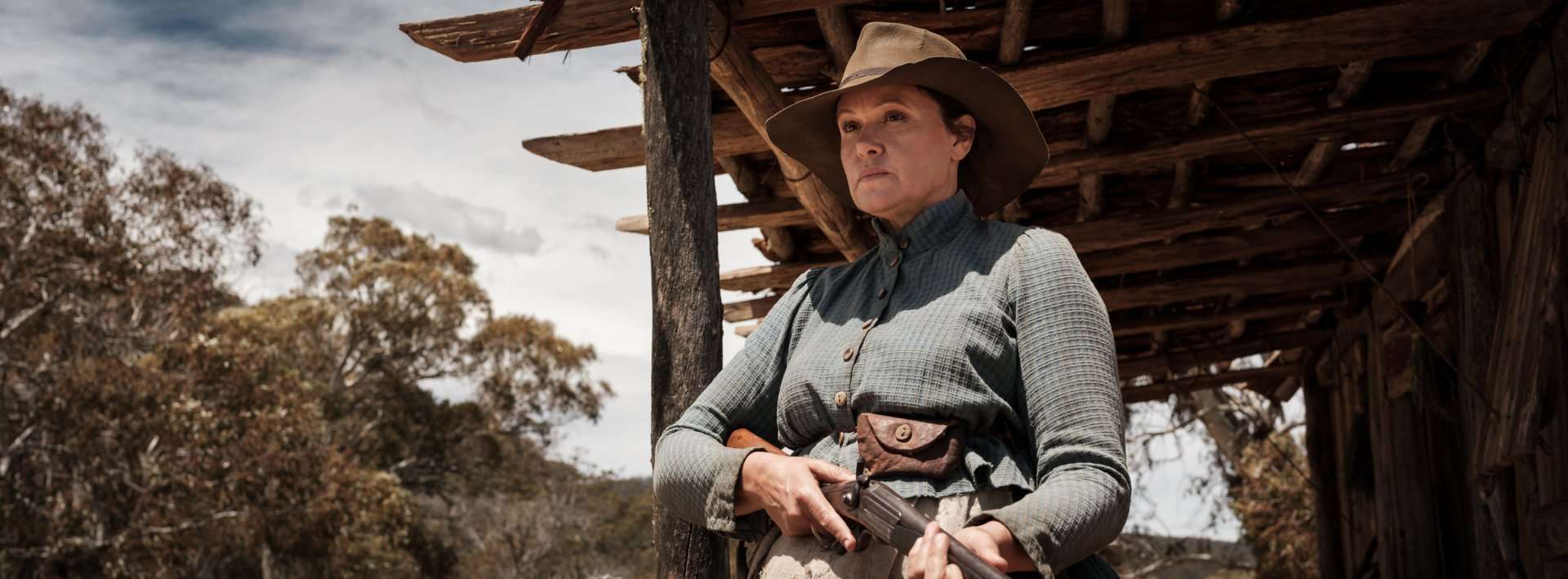The year is 1893. Molly Johnson (Leah Purcell) is a bushwoman living with her four young children. Molly is currently running the family farm while her husband is away working as a drover. We learn very quickly that Molly shouldn’t be messed with. Molly is currently pregnant, and we understand that she will do anything for her children and whatever is necessary to protect them.
The first act indicates that Molly has a few secrets or a dark past continually haunting her. But her demons won’t be the only thing she must deal with while her husband is away working. Soon, Molly is approached by an Aboriginal fugitive, Yakada (Rob Collins), who has shackles around his neck and desperately needs help to recover from his wounds, food and shelter. As Molly assists and shares conversations with Yakada, she soon learns more about herself and discovers her true identity.
Meanwhile, a newly appointed lawman seeks Yakada and deals with his unwell wife. Hearing that Molly’s husband is not home, he begins to investigate when he hears that Molly’s husband never showed up for his work. This leads the story to a whole new level.
For those unaware, The Drover’s Wife is a heavy drama film. Leah Purcell reimagined Henry Lawson’s short story by the same name into a play in 2016 and wrote it into a book in 2019. While Leah Purcell leads the film as Molly Johnson, she’s also credited as director and writer.
This is generally a slow-paced film, and the first act is filled with drawn-out scenes and forced dialogue that feels unfitting. Thankfully, once the first act passes, it almost feels like we have a different and more positive film moving forward, even more so once Molly discovers a fugitive lurking around her property.
Visually, there are some stunning moments to see on screen and a creative filming style, which I admired at several key moments. The atmospheric audio track sounds great, and the dialogue is clear to hear throughout. The musical score is questionable, as we hear an odd mixture of instruments, such as guitars and strings, which never felt consistent. At times, the musical score worked well, while at other times, I found it off-putting and highly distracting.
The performance from our lead, Molly Johnson, played by Leah Purcell, is certainly a major highlight. Whenever the character was off-screen, I felt the film slowed right down, and my general interest in the film waned. At times we are forced to follow the lawman along with this unwell wife, and sadly, it’s just not interesting or engaging. Some scenes feel unnecessary, and it truly makes the film feel a lot slower than I preferred. Supporting performance from actor Rob Collins as Yadaka was tremendous, and again, I enjoyed the film more whenever Molly shared the screen with him.
Overall, this is a dramatic and touching story of Molly Johnson. Leading performances from Leah Purcell and Rob Collins are great, and the film drags whenever the two are off-screen. Visually, I admired the level of creativity and filming style. It’s truly impressive that Leah Purcell has directed, written and led this film, and the results are quite positive. Any issues I have with this movie are generally minor. These include the questionable musical score, following uninteresting side characters, and the first act. No matter, I’m honoured by the experience that I witnessed on the big screen, and I’m confident there’s certainly an exciting career ahead for Leah Purcell in Australian Cinema.
5.8/10
2nd May 2022
Written by Peter Walkden

WALKDEN ENTERTAINMENT
PODCASTS ARE AVAILABLE!



0 Comments